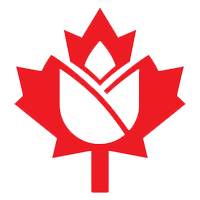Trade information
The Netherlands is a strong supporter of CETA. On the day CETA enters into force, 98% of all Canadian and EU tariff lines will be duty-free. This includes the elimination of tariffs on important Dutch exports to Canada, such as those on industrial machinery (up to 9.5%), chemicals (up to 15.5%) and iron and steel products (up to 8%). Under CETA, the Netherlands will benefit from tariff elimination on key agricultural products, such as tubers and bulbs (up to 6%), vegetable seeds (up to 5.5%) and cocoa powder (up to 6%). The Netherlands will also enjoy recognition of two geographical indications (Gouda Holland and Edam Holland). Dutch companies will have access to Canada’s estimated $177 billion government procurement market at the federal, provincial and municipal levels.
The NCCC has held various CETA events to help prepare member companies on both side of the Atlantic to take advantage of reduced tariffs. Below is a selection of presentations and information. Note that these were correct at the time of publication. Please check all information to ensure their current accuracy.
TRADE INFORMATION
Canada and the Netherlands have a dynamic, irritant-free, bilateral commercial relationship. The Netherlands is Canada’s fifth largest European trading partner and Canada's tenth in the world. Two-way trade was valued at $7.5 billion in 2014, up from $6.9 billion in 2013. Canadian merchandise exports to the Netherlands were $3.8 billion in 2014 while imports were $3.7 billion for the same period.
The Netherlands is the EU’s largest importer of Canadian products after the United Kingdom and Italy. Top Canadian exports to the Netherlands were mineral ores, mineral fuels and oils, nickel, oil seeds, and aluminum. Top Canadian imports from the Netherlands were primarily mineral fuels and oils, machinery, beverages, pharmaceuticals, and electrical machinery and equipment. Canada’s bilateral trade in services with the Netherlands totalled nearly $2.7 billion in 2013. Services exports totalled $963 million (12th position globally), while services imports totalled $1.7 billion (9th position globally).
The Netherlands is an economy based on trade and is often referred to as the ‘gateway to Europe’ with an enormous transport logistics infrastructure built around the port of Rotterdam, (the largest in Europe) and Amsterdam’s Schiphol Airport. Rotterdam handles more than 25% of Canadian exports to Europe, while Schiphol Airport handles daily and direct flights from Canada by KLM, Air Transat, Air Canada, Jet Airways and Sunwing.
INVESTMENT
The Netherlands is the second largest source of foreign direct investment in Canada, after the U.S. The stock of Dutch direct investment in Canada was $69.2 billion in 2014. These investments go beyond Shell and Philips to include investments in the ICT, agri-food, plastics and chemical sectors.
The stock of Canadian investment in the Netherlands was $17.5 billion in 2014. The Canadian company Northland Power is the lead financier of the $4 billion Gemini wind energy farm in the North Sea, 80 km off the Netherlands coast. The project is the Netherlands’ and Northland Power’s largest, and when completed in 2017 will supply 1.5 million Dutch households with clean energy. Northland Power’s investment is the largest ever by a Canadian company in the Netherlands.
